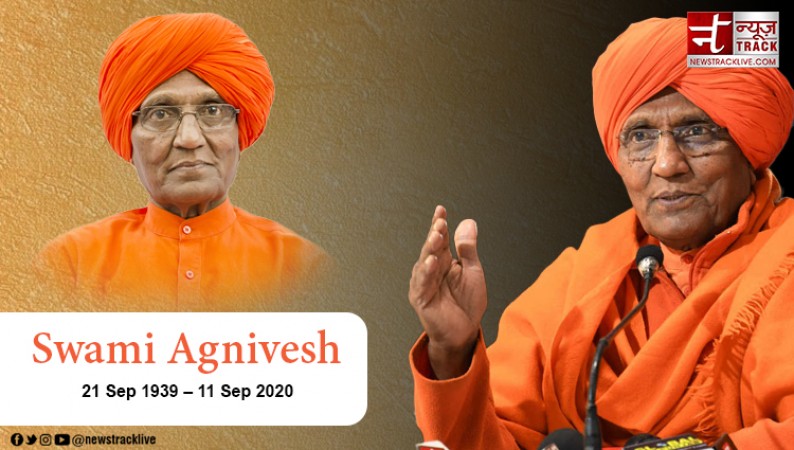
On September 11th, the world commemorates the third death anniversary of Swami Agnivesh, a revered and tireless campaigner against child labor and indentured servitude in India. Swami Agnivesh's life and work are a testament to the power of compassion, activism, and unwavering commitment to social justice.
Swami Agnivesh was not just a religious figure; he was a symbol of hope and change for countless marginalized individuals who were trapped in the vicious cycle of bonded labor. Born Vepa Shyam Rao in 1939 in Andhra Pradesh, India, he embraced a life of asceticism from a young age, renouncing worldly possessions and familial ties to dedicate himself to the service of humanity.
One of Swami Agnivesh's most significant contributions to society was his relentless battle against the exploitative practices of village moneylenders, landlords, and brick kiln owners. These oppressors often pushed landless, debt-ridden farmers and laborers into a life of bonded labor, depriving them of their basic human rights and dignity.
In 1981, Swami Agnivesh founded the Bandhua Mukti Morcha, which translates to the Bonded Labour Liberation Front. This organization became the beacon of hope for thousands of individuals trapped in the clutches of modern-day slavery. Under his visionary leadership, the Bonded Labour Liberation Front worked tirelessly to free bonded laborers, rehabilitate them, and ensure their access to education, healthcare, and vocational training.
One of the defining characteristics of Swami Agnivesh's activism was his unwavering commitment to non-violence. He firmly believed in the Gandhian principle of ahimsa, or non-violence, as a means to achieve social change. This philosophy guided his approach to addressing labor abuses and injustices in India. He never resorted to aggressive tactics but instead relied on dialogue, peaceful protests, and advocacy to bring about change.
Swami Agnivesh's impact extended beyond the borders of India. From 1994 to 2004, he served as the chairman of the United Nations Voluntary Trust Fund on Contemporary Forms of Slavery. In this role, he worked on a global scale to address various forms of modern slavery, including forced labor, human trafficking, and child labor. His leadership and advocacy played a pivotal role in raising awareness about these issues and mobilizing international efforts to combat them.
Throughout his life, Swami Agnivesh received both acclaim and criticism for his unflinching stance on social justice issues. He faced threats, physical attacks, and attempts to silence his voice, but he remained undeterred in his mission to eradicate bonded labor and child exploitation. His resilience in the face of adversity inspired countless individuals to join the fight for justice.
As we reflect on the third anniversary of Swami Agnivesh's passing, it is essential to carry forward his legacy. The battle against labor abuses and modern slavery continues, both in India and around the world. Swami Agnivesh's life serves as a reminder that one person's dedication and compassion can make a profound difference in the lives of the oppressed and vulnerable.
To honor his memory, we must continue to work towards creating a world where no child is forced into labor, no family is trapped in bonded servitude, and no human being is deprived of their fundamental rights. This requires not only legal reforms and policy changes but also a collective commitment to fostering empathy and compassion for those who suffer.
Swami Agnivesh's death anniversary on September 11th is a time to remember and celebrate the life of a true humanitarian and social justice champion. His dedication to the cause of labor rights and his unwavering commitment to non-violence continue to inspire generations of activists and advocates. As we pay tribute to his legacy, let us recommit ourselves to the pursuit of a more just and equitable world for all. Swami Agnivesh may have left this world, but his spirit and ideals live on in the hearts of those who strive for a better future.